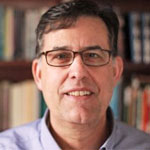The early church father Ignatius of Antioch (A.D. 30–107) frequently took along young men when he traveled so that he might invest in their lives. In one of his epistles [2], he referred to two such examples, Philo and Rheus Agothopus, who had followed him in the cause of Christ and consequently served as models for life and ministry. He left the imprint of his walk with Christ and gospel ministry in their lives. Likewise, “Ariston and the presbyter John, [and] the disciples of the Lord” mentored a young Papias (A.D. 70–155), later the respected bishop of the church at Hierapolis [3]. His personal relationship with these early leaders in the church shaped his future gospel work.
Although Valentine Tschudi (1499–1555) studied under celebrated scholars in Vienna and Basel, he found more rewarding the mentoring of Huldrych Zwingli (1484–1531). He wrote to the reformer, “You have offered me not only books but yourself also” [4]. His statement captures well the work of pastoral mentoring. The work of training and mentoring ministers for gospel work—church planting, missions, pastorates—proved so remarkable in sixteenth century Geneva that one writer quipped, “Geneva’s main export was ministers, principally heading for France” [5]. But the work through Geneva might not have taken place had Martin Bucer failed to speak into young John Calvin’s life as a mentor during his days in Strassburg, correcting attitudes and behavior unbecoming a servant of Christ.
Nineteenth century historian David Benedict considered the colonial Baptist John Gano as “one of the most eminent ministers in his day,” explaining that his itinerant gifts in gospel preaching were exceeded only by George Whitefield [6]. Yet Gano’s impact as pastor of First Baptist Church New York City and evangelist were due in no small part to the early mentoring by his pastor Isaac Eaton, and two other notable Baptist pastors that took him under their wing, Benjamin Miller, and John Thomas.
Behind the extraordinary missionary work of William Carey and the pastoral labors of Andrew Fuller lay the mentoring of Robert Hall Sr., pastor of a small congregation in Arnsby. Carey considered Hall “a jewel I could not too highly prize” [7]. Fuller considered Hall to be a spiritual father and friend, regarding his counsel more valuable than that of all of his other friends.
In a word, pastoral mentoring means investing in the spiritual and pastoral development of future leaders. I first heard the term “investing” used with reference to mentoring back in the late 1990s. One of our elders and I were riding with a missionary in France when he said that he needed to stop and “invest” in a particular man in his congregation. We glanced at each other with puzzled looks at what he meant. However, after traveling with him around his community for a few days we decided that “investing” in others spoke volumes about mentoring.
First, investing (mentoring) in others carries risks. Success does not always accompany mentoring but the future fruit is worth the risk. Just think about the lowly Robert Hall Sr. who sacrificed to mentor Carey and Fuller whose ministries remain models in our day.
Second, investing (mentoring) in others requires patience. A quick course on Christian living or pastoral work lacks the ability to penetrate the mentee’s life. Mentors learn to layer truth and experience in their mentees.
Third, investing (mentoring) in others demands your life. Like Zwingli with Valentine Tschudi, we must give more than books; we must give our lives to shape our mentees.
A pastoral mentor does not need to be famous, serve a large church, or hold advanced degrees. Like many of the historical examples, he just needs to faithfully invest life and ministry in the younger generation to help prepare them to passionately serve Christ’s church.


























